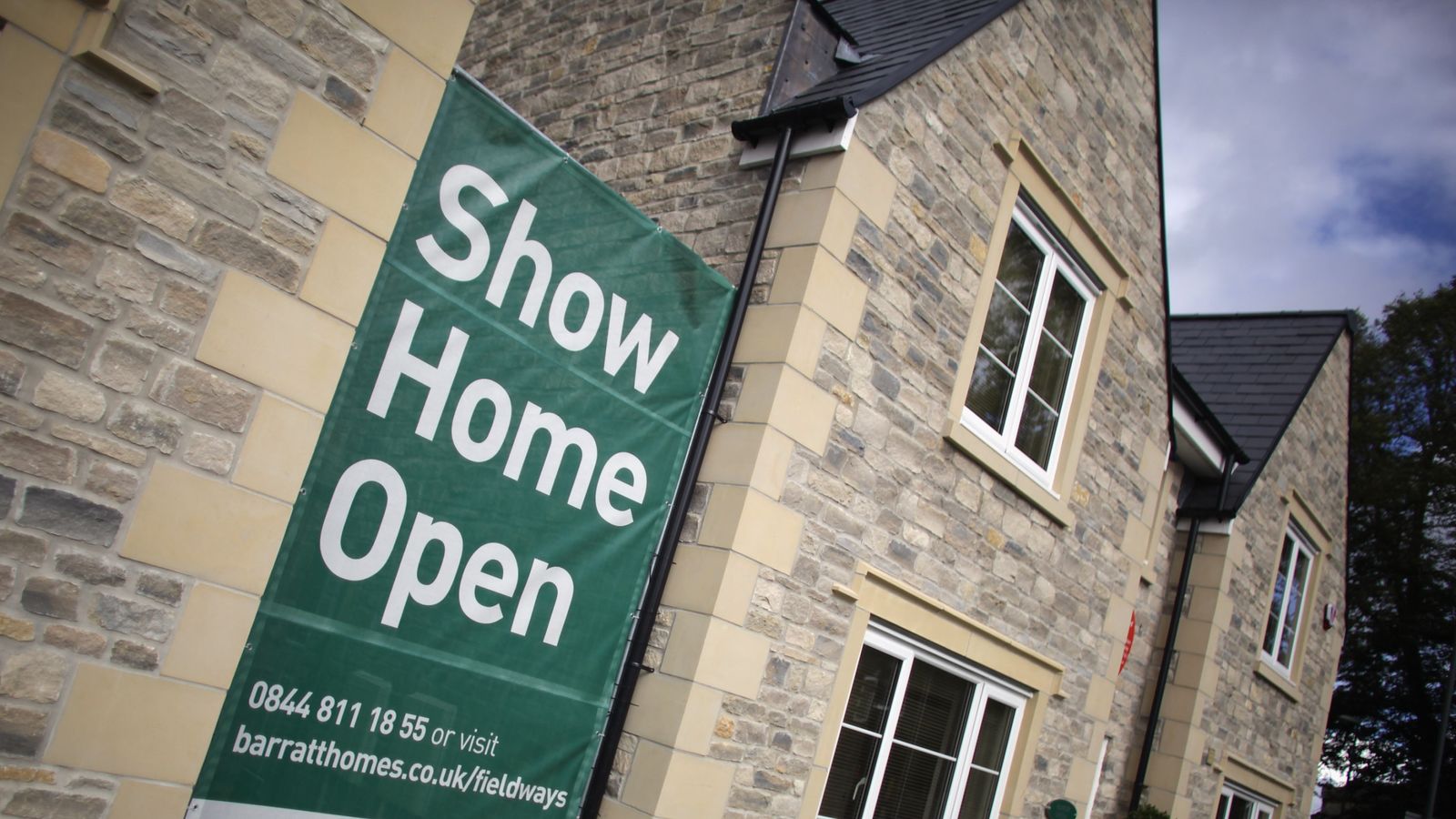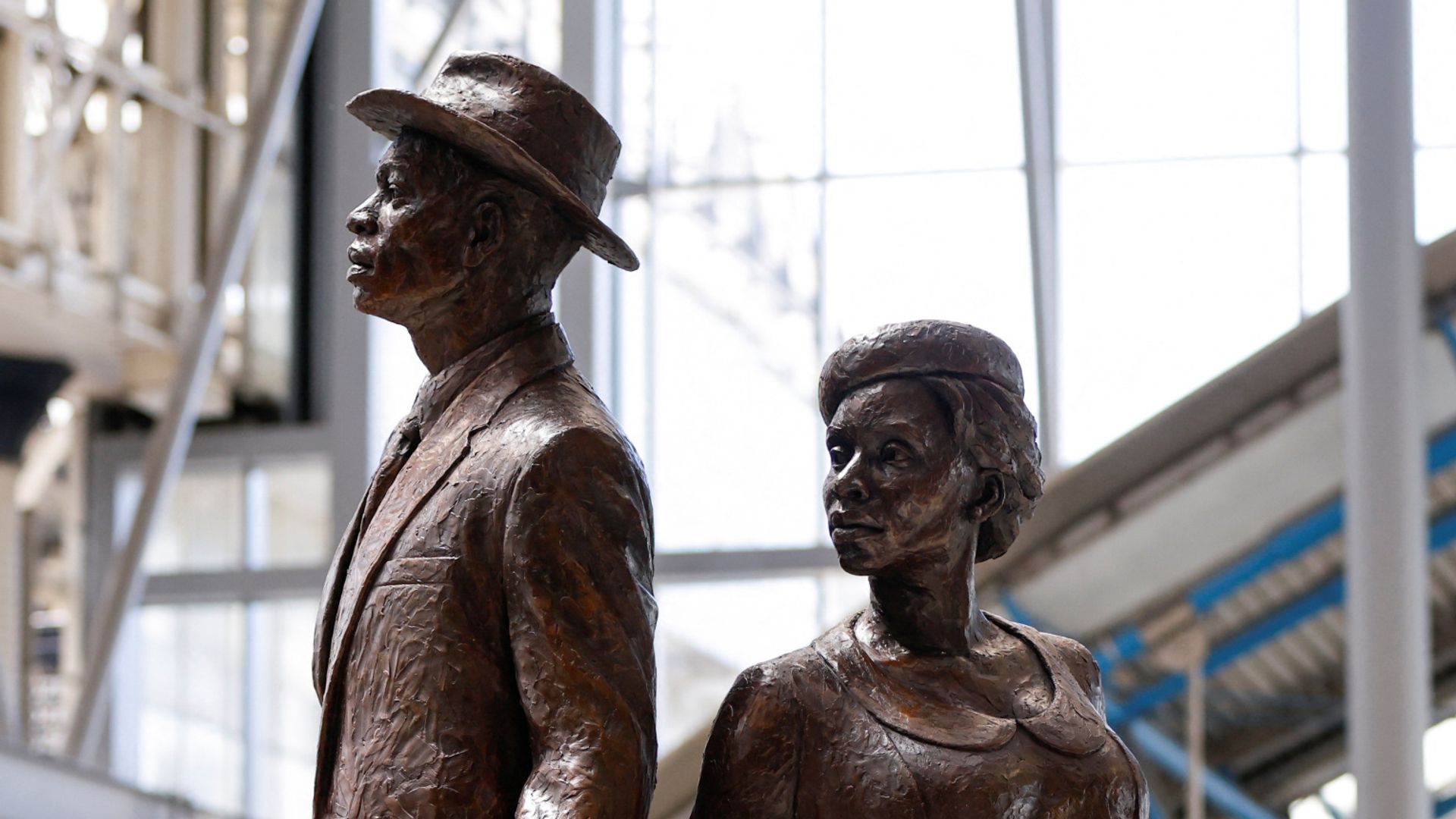As the UK’s biggest housebuilder by volume – and its second largest by stock market value – there are few better indicators as to what is going on in the new build market than Barratt Developments.
What it had to say on Thursday, however, was not especially encouraging.
The company warned it may build at least 20% fewer homes this year.
From 17,206 in the year to end of June, Barratt expects this year to build between 13,250 and 14,250 new homes in the financial year just started.
It explained: “Looking ahead, we recognise that there are significant macro-economic headwinds, most notably persistent inflation and a higher interest rate environment, which will impact UK economic growth, employment, consumer confidence and spending.”
Barratt has already noticed chillier conditions.
Total housing completions in the financial year just ended were down 3.9% on the previous 12 months – reflecting what was, very much, a year of two halves. The last six months of 2022 saw Barratt complete 6.9% more homes on the same period in 2021 but, during the first six months of 2023, completions were off 12.8% on the same period a year earlier.
That change in fortunes suggests the recent rapid pace of interest rate rises from the Bank of England is starting to have an impact on homebuyers and, in particular, on first time buyers.
Please use Chrome browser for a more accessible video player
The company said: “Following the end of Help to Buy and increases in mortgage interest rates, first time buyer reservations in the year reduced by 49% compared to [the year to the end of June 2022] and accounted for more than half the decline in our total reservation rate.
“Demand amongst existing homeowners was more resilient.”
Tactfully, the company made no reference to the government’s abandonment last November of its target of building 300,000 new homes a year, an announcement many in the sector believe has dampened activity.
The blame for that, many housebuilders believe, is the government itself and, in particular, the Housing Secretary Michael Gove’s watering-down – in the face of pressure from Conservative backbenchers – of the requirements for councils to have to plan for more homes.
That came on top of Mr Gove’s strong-arming of housebuilders – but not building materials suppliers – to meet the cost of replacing cladding on apartment blocks around the country in the wake of the 2017 Grenfell Tower fire.
As one housebuilding industry source told the industry publication Property Week this week: “Gove seems to despise the housing industry and wants to damage it.”
While shares of Barratt fell by 4.5% at one point on the update, dragging down fellow FTSE 100 builders Persimmon, Berkeley Group and Taylor Wimpey, there were a few crumbs of comfort in the statement.
Please use Chrome browser for a more accessible video player
One is that the company expects to see inflation start to ease this year. While build cost inflation came in at between 9-10% in the financial year just ended, the company expects that to abate this year, dropping to “around 5%”.
Another – more a cause of satisfaction for shareholders than would-be homebuyers – is that pre-tax profits are expected to be in line with market expectations and that, more importantly, Barratt – like many of its peers – is in a much healthier financial shape than it and other housebuilders were when interest rates were last this high 15 years ago and the financial crisis was getting underway.
Barratt said today that, at the end of the last financial year, it had net cash of £1.070bn even after completing a £200m share buy-back and spending £820m on land during the year.
That is quite a contrast with the situation this time in 2008 when, having blown £2.2bn the previous year on rival Wilson Bowden, Barratt had debts of £1.7bn supported by equity of just £317m. The company subsequently wrote down the value of its land bank by more than £590m and, in September 2009, was obliged to raise £720m via a sale of new shares.
Read more:
Almost one million households face £500 a month mortgage hike, Bank of England warns
Average two-year fixed mortgage hits 15-year high
Nor is the current situation comparable with the one the company went through during the housing crash of the early 1990s when Barratt nearly went bust and its legendary founder, Sir Lawrie Barratt, was obliged to come out of retirement and lead a turnaround.
Now it is worth pointing out that, so far, house prices have fallen only modestly compared with events in the early 1990s or around 2008-09.
And there are signs of storm clouds gathering over the market, as shown by Bank of England data published today, which suggested that the number of defaults on mortgage payments has increased by the greatest amount since 2009.
Please use Chrome browser for a more accessible video player
But housebuilders like Barratt, based on the experience of past boom-and-bust housing market cycles, appear better placed to cope with whatever is coming this time around.
As Sanjiv Tumkur, head of equity research at Rathbone Investment Management, told Sky News today: “If you step back, the housebuilders have learned the lessons from previous downcycles. They’ve got strong balance sheets.
“Barratt has a net cash position of more than £1bn – that should give people confidence that, whatever the vagaries of near term trading, the company is well placed in the long term and will have the balance sheet to take advantage of opportunities if they see land prices fall.”








